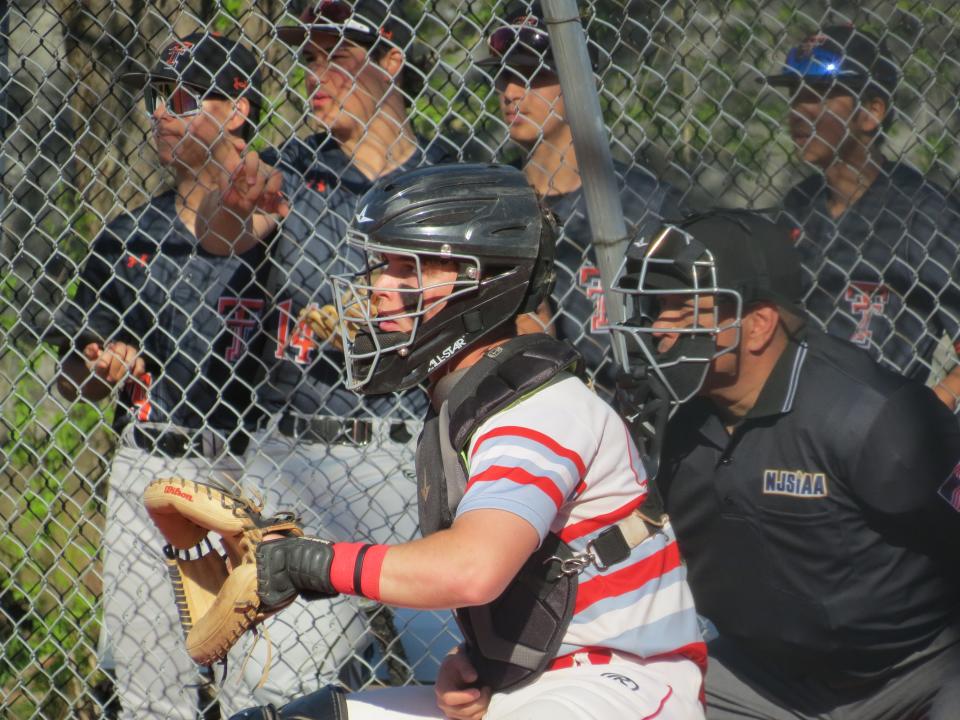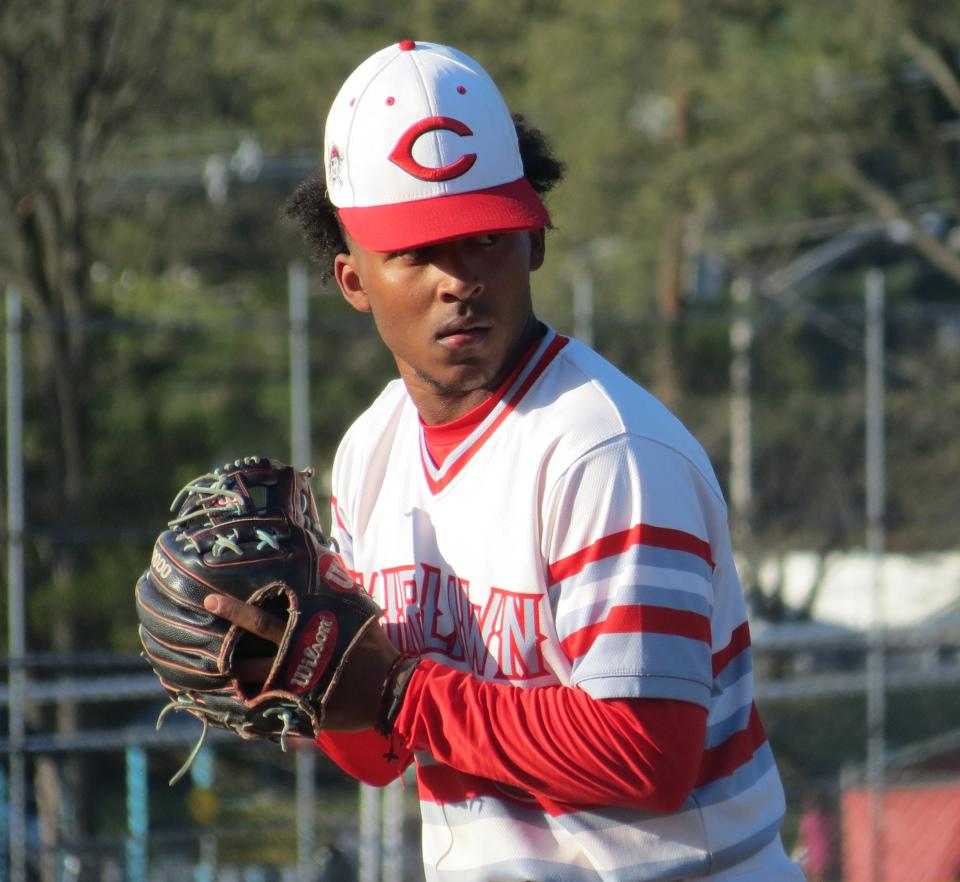Why some HS baseball teams are using electronic communication between coaches and catchers
Catcher Liam Wozniak much prefers hearing his coach’s exact instructions in his earpiece rather than repeatedly looking into the dugout for signs.
New Jersey high school coaches are now permitted to provide pitch choice, location and advice to catchers via an electronic device, and the Fair Lawn senior says life behind the plate has become a whole lot better.
“I love it,” Wozniak said following Tuesday’s home game against Tenafly. “I think it makes calling the game a lot easier.”
The National Federation of State High School Associations approved the rule change last summer, and Fair Lawn’s Mike Rosenblum is among the first North Jersey coaches to “jump” at the chance for greater communication.
“In an effort to get ahead of the curve, and gain whatever advantage I can, it seems to make sense to jump at the opportunity,” Rosenblum said.

Major League Baseball and college teams are permitted to employ electronic devices. Allowing teens to hear, in their coach’s own words, pitch choice, location, and instruction can be an invaluable experience for catchers still learning the position and the game.
“I think it’s phenomenal,” St. Joseph coach Mark Cieslak said, “because they’re high school kids, so every time you say something to them, they just nod their head, ‘Yes.’ But they don’t really hear you.”
The rule by the Indiana-based NFHS only allows coaches to contact catchers, and the coach must be in the dugout. The rule was introduced to “maintain the balance between offense and defense,” … “increase pace of play,” … and “responsibly manage technology so there is no advantage gained by schools that have more available resources than some of their contemporaries.”
“This change is consistent with the growth of the game and is indicative of a measured and responsible approach to enable technology into our level of competition,” said Elliot Hopkins, NFHS Director of Sports and Educational Services and liaison to its Baseball Rules Committee.
Rosenblum said Fair Lawn spent about $500 for a coach’s headset and has a choice of a set of earpieces or a wired earpiece for the catcher. Rosenblum said his catcher uses the wired earpiece because it’s "more consistent staying in his ear and easier for him to manage," and the Cutters are bullish on the investment.
“Hearing it is definitely a lot easier, because it could be hard to see through the fences what sign he’s trying to give, what play call he wants to do,” Wozniak said. “Him telling me what he wants, like a first-and-third situation, or a bunt situation, makes it a lot easier to process everything and tell my defense what has to go on.”
“We have had times where there has been confusion with a sign, or sign for location, whatever it may be, and this has eliminated almost all of those,” said Rosenblum, a 1998 Fair Lawn graduate. “I don’t know if it’s sped up the game as much as it’s cleaned up the game for us.”
Cieslak favors the electronic device because it allows his pitching coach, Paul Magrini, to also explain the ‘why’ behind the pitch choice, location, etc.
“It’s a nice conversation you can have with the catcher, in terms of really teaching him the game,” Cieslak said, “because now you’re really reiterating all these things you taught them in the winter that you hope they remember.”

Cieslak also points out that employing electronic devices prevents the never-ending attempt at sign stealing.
“Everybody makes up their own signs, or you could do numbers,” Cieslak said. “But you have to keep in mind, everybody is looking at that. If you’re giving signs, and [the catcher] looks to the left, so is the coach on the other team, so are the batters on the other team. Everybody’s trying to pick up that sign.”
“I wish I could have one for my coaches, so I could talk to them on the bases,” added Cieslak, noting the only drawback has been an electronic malfunction. “That would be nice.”
Fair Lawn (5-4) has utilized 15 pitchers, and its top two hurlers approve of the electronic device because it helps them build and maintain their rhythm.
“It’s faster,” said Cutters junior right-hander Alex Cruz, one of four pitchers used against Tenafly. “My catcher doesn’t have to think about it. It’s just quick and we can move on with the game.”

“For me, it does speed up the game,” said Fair Lawn’s ace, senior right-hander Zach Taylor. “It lets him put the sign down faster, and let’s me get into my rhythm faster.”
Will this electronic device become standard in the years to come? Rosenblum thinks so, because it significantly reduces mistakes by providing greater communication. He’s glad to be among the first in North Jersey to use it.
“I think the change is coming. The professional levels are using it, the college levels are using it,” Rosenblum said. “Three to five years from now, I think everybody at this level will use it. I try to embrace the change, and I’d rather be the first one to change than the last one to change.”

This article originally appeared on NorthJersey.com: NJ baseball coaches begin using electronic communication with catchers

